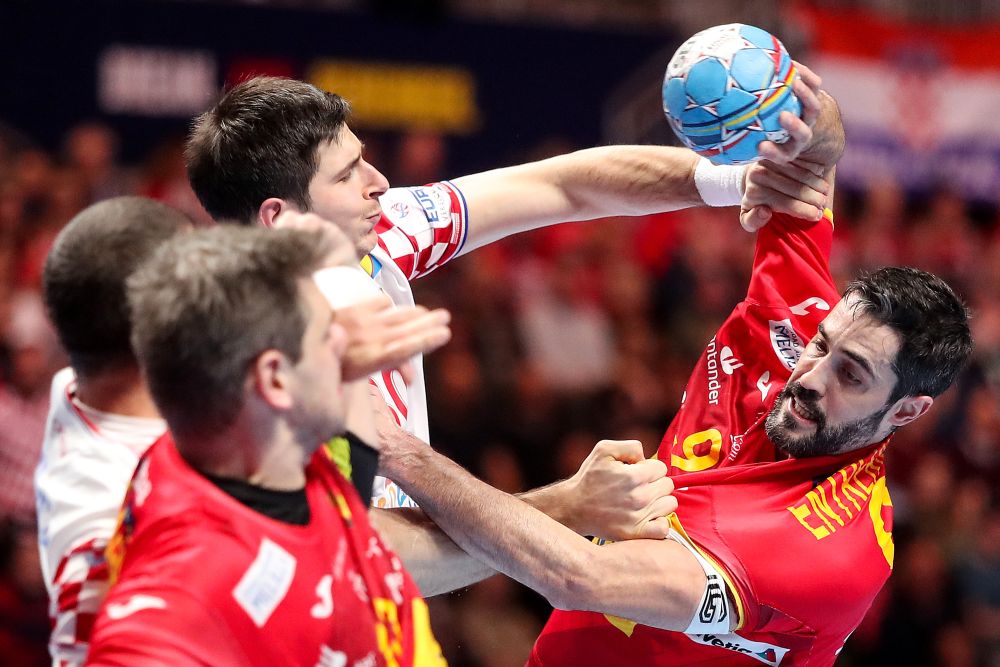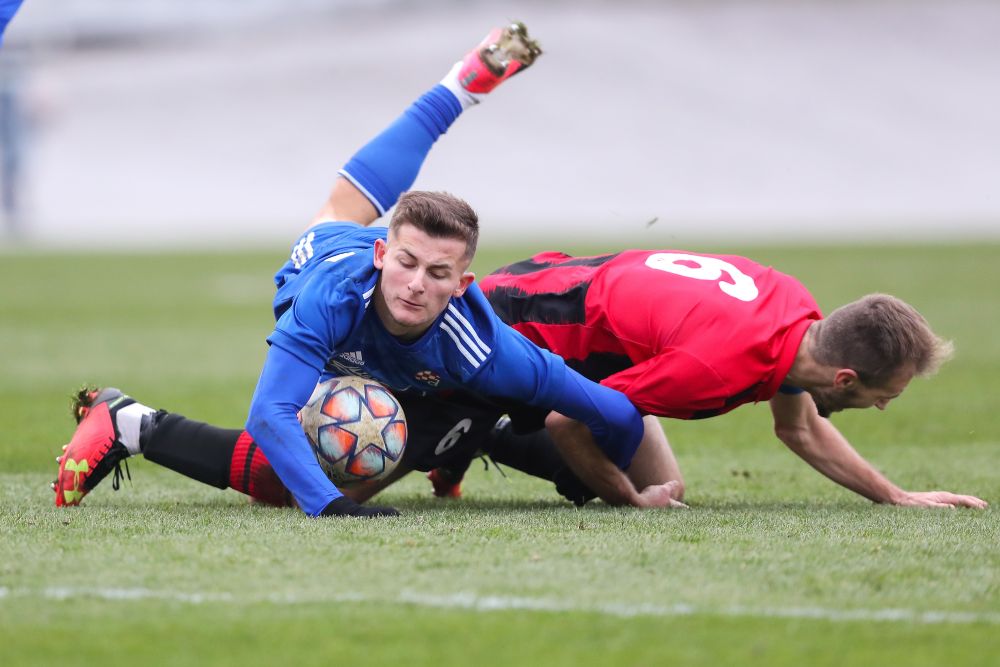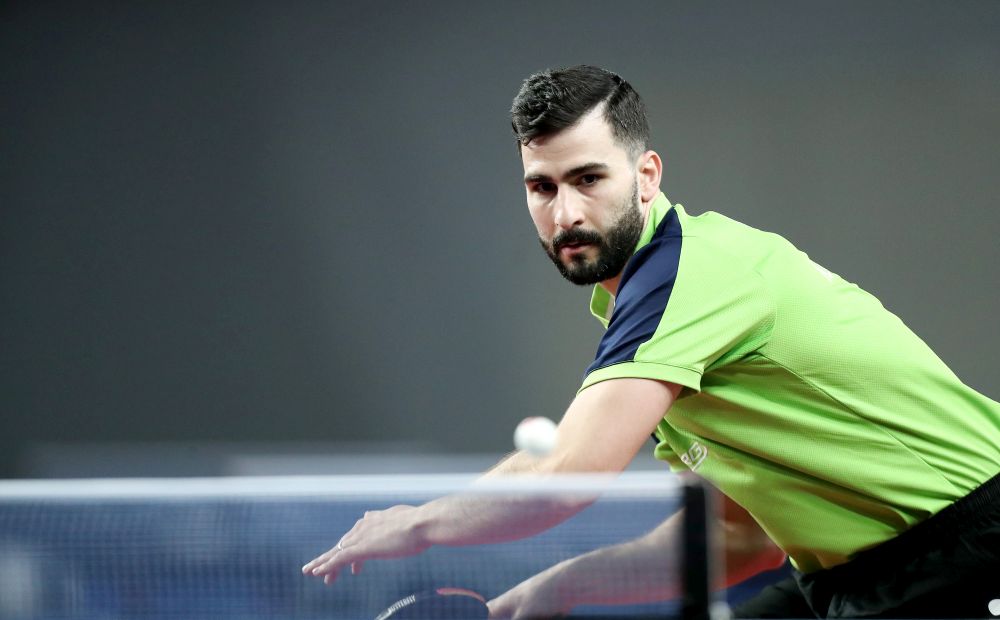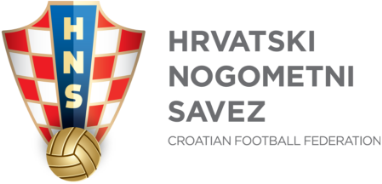LAUSANNE, April 10, 2020 – The AIPS e-College initiative continues to gather momentum as former IOC head of marketing, Michael Payne, returned on April 9 for another engaging Zoom session with nearly 100 enthusiastic Young Reporters from across the world.
“I think the initiative is groundbreaking and you are all pioneers here now. I really enjoyed last week’s meeting,” Payne said.
Having dwelt on the postponement of the Tokyo Olympic Games last week, with great insights on how and why the decision was made, Payne, began Thursday’s class by sharing a brief history of sports marketing.
EXPLOSIVE GROWTH “For practically the last couple decades, I've been at the forefront of the sports business and have seen the explosive growth of the industry. That growth was driven by two revenue sources: sports relationship with broadcasting and then sports relationship with the commercial sponsorship industry. If you go back to the very beginning of television, sport was identified as a key content producer, as something that people would want to watch live, and it gathered from the outset some of the largest audiences.
Sports and television “That relationship between sports and television from over the last 60 years has become probably the single most important driving force to broadcasters as the only content vehicle that is guaranteed to get the largest audiences. Why do broadcasters fight so hard to get the rights to key sporting events? Back in the early fifties when broadcasting was just starting the question was, ‘why did the broadcasters have to pay?’ The US broadcasters even boycotted the Olympic Games, refusing to broadcast them because they didn't want to set the precedent of having to pay rights fees. If the sports movement not succeeded in getting the broadcasters to pay, where would sports be today without that financial billions of dollars that comes from broadcasting?
Sports and sponsorship “Sharing the other key pillar being sponsorship, when I took over the Olympic marketing sponsorship, then it was basically having your name placed around the side of the stadium or placed across the athlete and that was it. So how were we going to get companies to pay sponsorship, what are you offering? You want to advertise on a car or an athlete because you want the TV exposure, from the Olympic sponsorship side, there was no exposure. But what we eventually succeeded in doing is getting people to understand the value of associating with the image and brand. That, actually, companies could connect with sport by building a strategy on those brand platforms. Once the big market really began to understand the potential of that, that's where sponsorship took off. So that's a little bit of history and context.”
COMING OUT OF THIS CRISIS Payne, who has been at the forefront of the sports marketing industry for over thirty years, then went on to give his opinion on the future of sports financing, organization and sponsorship after the coronavirus crisis.
Cash flow problem “I think very few Industries are going to remain unchanged when they come out of this crisis and sport is not going to be left untouched. From the broadcast media standpoint, sports is their most important content to get the largest audiences, so the only challenge to put in play at the moment is just a question of cash flow, because the broadcasters have stopped paying they will start paying again when sports starts.
Sponsorships on hold “Sponsorships are a little bit different because I think all companies now have to make drastic moves to stay alive. Budgets are going to be hit very hard. You're going to see a lot to sponsorships put on hold, stopped and it will take time to rebuild.
“The third key source of sports bodies’ revenue is ticket sales and I think that will come back pretty quickly. But what all sports will now face is a serious cash flow problem and their basic revenue sources put on hold for months, but still maintaining serious expenditure – like the football clubs with the salaries of their players.
Financial revolution “And I think there is going to be a financial revolution across the sports industry starting at the very top where there will need to be a complete re-engineering of the financial model because the cost basis cannot be supported. There will be fundamental changes whether it's in the ownership of the property, whether it's in future budget, salary caps, whether it's in a restructuring of the sporting schedule.”
CELEBRATION OF HUMANITY The IOC’s first ever Marketing and Broadcast Rights Director however reiterated his stance that the Tokyo Olympic Games, which will now be held in 2021, has the potential to be the greatest ever.
“I think the Olympic leaders and the Japanese will be looking at how some changes should be made in the celebration of the Games, particularly in areas like the torch relay, to acknowledge and respect what the world's gone through.
Community heroes “So I wouldn't be surprised if many of the torchbearers, when the torch relay finally kicks off, will be the ultimate community heroes, the medical professionals who've been in the front line. It will help to drive some very powerful messages connected to the Olympics and I think the engagement next year, the television audiences will be stronger than ever.”
QUESTIONS AND ANSWERS
In 2017 Alibaba Group became the digital partner of the IOC, what does such a partnership mean?
- The Alibaba deal, I brokered it. I had the opportunity to meet with Jack Ma, who I think is without question one of, if not, the most visionary business leaders I have ever met and I've been privileged to many global business tycoons over 40 years. When we started out with Alibaba, the IOC was very interested in developing licensed merchandise. Jack Ma said, ‘yeah, that's interesting, but we've also got this other little business called the cloud’. And back into 2017, I had no idea what the cloud was but that was factored into the discussion of the partnership with the IOC and over the course of the last three years working together with Alibaba, the Olympics really began to look at developing its digital strategy. Digital strategy data is being referred to as the new oil. And I think over the next few years, you will see a complete transformation. The technology revolution is allowing the IOC to connect and communicate one-on-one with the sports fan, not necessarily from the live programming content - that can stay with the broadcaster.
How does the IOC manage or monitor the exclusive rights of broadcast content where a broadcaster is paying to get content but people still pirate that content?
- If everybody can easily get access to the content then what would the broadcaster pay for in the first place? The whole funding model of sport will collapse. So when broadcasters make an agreement with the sports body, they pay to get the content and normally it would be we want that to be exclusive. So it's only on our platform. Therefore we get all the viewers to our platform we get the advertisers to our platform. The IOC or federation will actively monitor the whole situation through a technology based on geo blocking - from locking it into a given geography, to scrambling of signals, to all sorts of technology that's beyond my pay grade, to be able to limit the ability for unauthorized broadcast of the coverage when it comes to the big events like the World Cup or Olympics. The rights owner is also working very closely with the VPN providers and others to close down any infringement. Equally, in the early days of internet development we had newspapers wanting to do video coverage of the Olympics. But we let them know that if they don't stop broadcasting they will lose their accreditation. It was a very effective tool at getting most media and broadcasters to respect the rules.
What do you think is stopping sports broadcasters and the IOC from fully embracing the streaming revolution?
- I think most property owners are embracing it, not necessarily to replace the partnerships with the big broadcasters, but to supplement it. You look at several of the leading sports leagues, they all have their own channels, a lot of the football clubs have their own channels, the IOC created the Olympic Channel. There's no question that streaming would become an ever more important element in the overall portfolio for all sports bodies to engage with their fan base.
Alibaba Cloud wants to transform and upgrade the Games. What does this mean for the International Broadcast Center?
- One of the first examples of the cloud changing things in broadcasting will be seen in Tokyo, where for the very first time, the IOC will produce master signal of the Games and then feed to each of the broadcasters at the main broadcast center. The major broadcasters who want focus on their athletes will then have what is called additional supplemental cameras in the stadium. So you imagine the 100m final, you'll have the IOC broadcasting the whole final but NBC wanting a close-up of the eyes of the American athlete. What Alibaba has been working on with the IOC is that for the first time all of the content will be in the cloud. Broadcasters will no longer have to send thousands of additional people to the Games, and can actually complete production back in their own headquarters.
Many international sports federations are financially depending on the Games, how can they be preserved considering the postponement of Tokyo 2020?
- Probably at least half, if not two-third of the international sports federations, in some cases, have the Olympic Games as their only source of revenue. Normally they receive that after the successful staging of the Games. So it would have been at the end of 2020. But now they won't receive it until the end of 2021. So there is a clearly important problem and I understand that the federations have begun discussions with the IOC to see to what extent they can go through the next 12 months effectively.
Do you think the control of the Olympic Games’ international coverage footage by the IOC could harm critical sports journalism?
- I think, first of all, the mandate of the Olympic Broadcasting Services is purely to provide a neutral visual report on what is happening on the field of play. It's not singling out one particular athlete. That's left for journalists who put the narrative together over the images. The OBS doesn't from its master feed provide any journalistic commentary or opinion.
Can you explain a little bit about the process of rights negotiation even for continental and national holders?
- The rights are granted for a specific territory and may be done on a country-by-country basis. So in the case of America or Japan, the IOC discusses directly with the broadcasters. In other areas, it may be on a regional basis such as in Europe or Africa where there's a discussion with the broadcast union or a group that is representing that entire region. The IOC will request for proposal and have a bidding process to find what is the best solution, and the solution may not necessarily be the highest bidder. There can be other criteria. It could be sitting down with your existing partner and just say look, ‘it's been a great partnership for the last 20 years, why don't we see if we want to renew it for another 10’. It changes according to each country and you know, the level of competition in that country, whether they see the big audiences.
What does the future hold for sports that don't get TV broadcasting revenues and depend on what we might call low-level sponsorship?
- I think they're in a very interesting, exciting and positive position because technology is now allowing them to engage and connect with their community, which was not possible before. So you may be a very minor sport and maybe in each country have five, 10, 20 thousand true fans and followers, and that's not a big enough audience for the broadcaster. But now you start adding up those small audiences country by country and you begin to build up an important profile that the sports federation with the technology can now engage and connect with. I have seen many sports that until recently had no real hope of any broadcast rights or any real sponsorship deals, but because they're creating a digital platform and connecting to all their fans around the world – they may have several million fans when it's taken worldwide - there are revenue opportunities opening up.
WHAT NEXT? Following the very interactive session with Payne, it was time for the AIPS President Gianni Merlo and the AIPS mentors – Keir Radnedge, Riccardo Romani and Martin Mazur – to present the official educational programme for the AIPS e-College which will last until June.
The classes, which will take place on Tuesdays and Thursdays, will see top international officials and athletes tackling a variety of subjects from Olympics to top football tournament organisations, anti-doping, fair-play, refereeing, training and gender-equality; plus renowned journalists discussing interviews and press conferences, investigations, video making techniques, storytelling for writing and photography and criteria for editing.

 EN
EN HR
HR




































